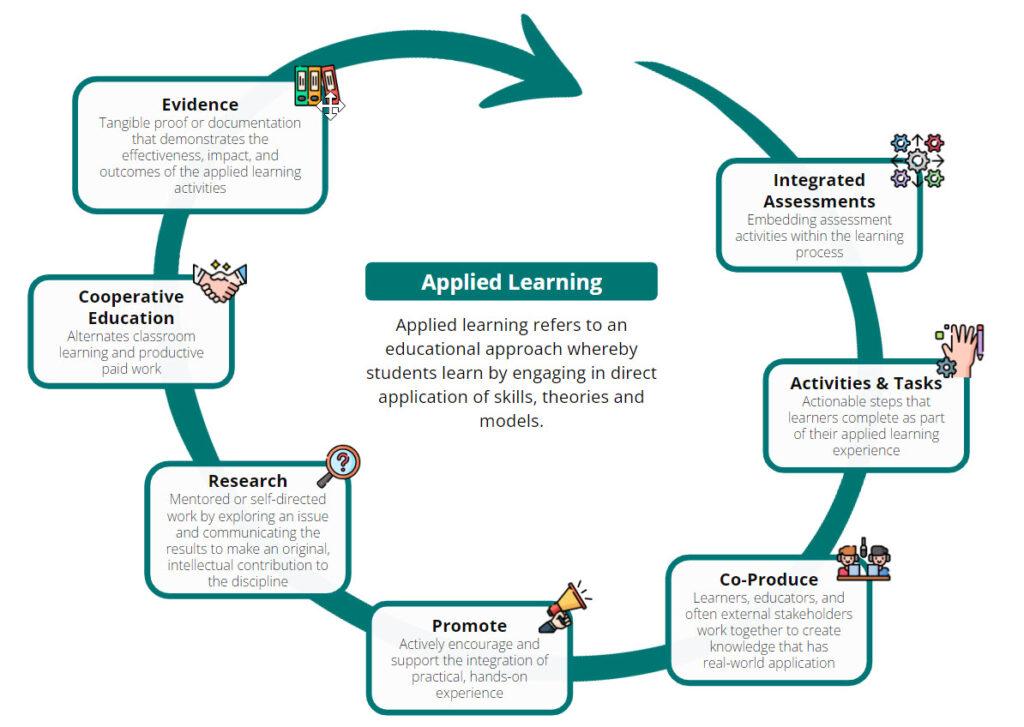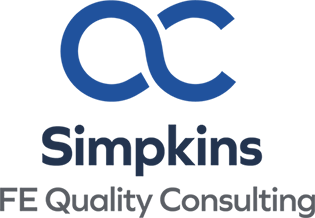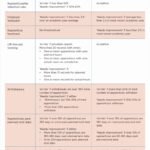
How Effective Is Your Progress Review: A Guide
Are you confident in the effectiveness of your current apprenticeship progress review process? This comprehensive guide allows you to compare your methods to an in-depth review framework designed to optimise progress tracking and support for apprentices.
What is an Apprenticeship Progress Review?
An apprenticeship progress review is a systematic evaluation that tracks an apprentice’s growth, ensuring their development aligns with the set learning objectives and industry standards. This structured approach helps maintain the quality and effectiveness of the apprenticeship program. Progress reviews are a vital part of apprenticeship training that allows apprentices to track their progress towards their learning goals. As an apprenticeship training provider, it is essential to conduct effective progress reviews that provide valuable feedback to both the apprentice and the employer. These reviews can be tailored to cover any evidence of importance to Ofsted’s Education Inspection Framework and ensure you meet the ESFA funding rules.
Full Guide
The Importance and Purpose of a Progress Review
Regular progress reviews are essential in apprenticeship programs. They monitor achievements and identify areas needing improvement. These reviews should be conducted at least every 12 weeks to ensure apprentices remain on track and provide support to facilitate their professional growth.
For training providers, progress reviews offer a chance to closely track an apprentice’s progress, pinpointing any struggles and allowing for timely support. Regularly conducting these reviews helps apprentices work towards their goals and meet the required standards.
For training providers, progress reviews offer a chance to closely track an apprentice’s progress, pinpointing any struggles and allowing for timely support. Regularly conducting these reviews helps apprentices work towards their goals and meet the required standards. The involvement of employers in these reviews is crucial, as they impact retention and, ultimately, the apprentice’s progression should they stay on at the end of the apprenticeship.
Progress reviews also enable tailored learning to an apprentice’s needs, gather evidence of achievements, capture valuable feedback and set targets to keep apprentices motivated and focused. This approach supports the apprentice’s development and enhances the overall quality of the apprenticeship program.
What Is Progress Feedback?
Progress feedback during reviews offers detailed, constructive insights to help apprentices improve their performance and stay motivated. Effective feedback guides apprentices in refining their skills, boosting their confidence, and achieving their learning objectives. It also maintains high standards within the apprenticeship program, ensuring consistent evaluation and alignment with industry expectations and training goals.
Advice & Key Considerations
Tailoring Apprenticeship Progress Reviews to the Education Inspection Framework
Conducting Progress Review Meetings
Set clear objectives and expectations for progress review meetings. Ensure the involvement of all stakeholders, including the apprentice, employer and training provider. Effectively structuring the meeting maximises its impact.
During reviews, focus on critical areas such as progress towards learning goals, evidence of learning, and apprentice wellbeing. Tailoring the review process to meet inspection frameworks like Ofsted’s Education Inspection Framework ensures compliance and enhances the quality of the apprenticeship program.
Incorporating high-impact learning strategies and student motivation techniques that can directly link to real-world applications of their skills and the apprenticeship program’s objectives is essential in providing high-quality training. Additionally, staff training to deliver these progress reviews is vital. The progress reviews will become meaningless unless they can conduct them to a high standard.
High-Impact Learning Strategies for Apprenticeships:
To ensure apprentices acquire the necessary knowledge and skills, use high-impact learning strategies tailored to their needs. These strategies should include structured on-the-job training combined with theoretical knowledge sessions. Practical assessments, targeted questioning, and regular feedback sessions can significantly boost apprentices’ understanding and retention of the material. Employ formative assessment techniques, such as ongoing skill evaluations and workplace observations, to ensure that the apprentices are consistently progressing and meeting industry standards.
Student Motivation Techniques:
Motivation is crucial for apprentices, who must balance work and study. Techniques to keep apprentices motivated include setting clear and achievable goals and recognising their progress through regular reviews and feedback. Providing opportunities for apprentices to apply their skills in real-world scenarios can also enhance motivation by showing the relevance and impact of their training. Support systems, including mentorship programs and access to mental health resources, can help apprentices stay engaged and committed to their learning journey. It’s essential to recognise that every apprentice is different, and a one-size-fits-all approach won’t work; personalised strategies tailored to individual needs are vital in maintaining motivation.
Real-World Applications:
Applying learned skills in practical, real-world contexts is vital for apprentices. This is achievable through on-the-job training, where apprentices work on actual projects under the guidance of experienced professionals. Simulated work environments and practical workshops also help apprentices understand how their training applies to real-world tasks and challenges. Encouraging apprentices to reflect on their experiences and integrate feedback from these practical applications ensures their learning is relevant and impactful.
By integrating these strategies, apprenticeship programs can align with Ofsted’s Education Inspection Framework, ensuring high-quality training that meets regulatory standards and effectively prepares apprentices for their careers. For more detailed guidance on implementing these strategies, refer to resources and best practices shared by educational institutions and regulatory bodies or get in touch for more details.
Valuable Resources: (Ofsted FES) (Ofsted FES) (GOV.UK) (Ofsted Consultancy)
Additionally, effective curriculum sequencing is crucial in apprenticeship programs. This involves organising educational content in a cycle of learning, doing, reviewing, and repeating:
- Learn: Introduce new concepts and foundational knowledge.
- Do: Apply the learned concepts through practical activities and real-world tasks.
- Review: Assess understanding and performance, providing feedback.
- Repeat: Revisit and reinforce areas needing improvement based on the review.
This cycle ensures continuous reinforcement and skill development, adapting to learners’ progress and needs.
How to Make Apprenticeship Progress Reviews Efficient
Planning Ahead for Efficient Progress Reviews
Effective planning is crucial for efficient apprenticeship progress reviews. Using technology can streamline the process, focus on key areas of development, encourage self-reflection among apprentices and manage time wisely during reviews. Here are some examples of technologies that can help:
- Digital Portfolios: Mahara or Onedrive – Enable apprentices to upload assignments, projects, and reflections.
Learning Management Systems (LMS) like Moodle or Anthology (Blackboard) can be used to deliver training materials, track apprentice progress, and schedule assessments. These platforms allow for collecting feedback and responses before the progress review meeting. This pre-meeting engagement can save time and improve overall interaction during the review.
Frequency and Duration
Conducting progress reviews every 8 to 12 weeks ensures a balanced approach that provides timely feedback while allowing apprentices to demonstrate meaningful progress. This interval is frequent enough to address emerging issues promptly but sufficiently spaced to avoid unnecessary interruptions in the learning process. Ideally, each review session should last between 60 to 120 minutes, offering ample time to comprehensively cover all aspects of the apprentice’s progress, including work review, feedback and goal setting. This duration ensures thoroughness without leading to disengagement.
The frequency and duration of reviews should be tailored to the apprentice’s individual needs and the specific requirements of the apprenticeship program. Conducting more frequent and longer reviews may be necessary for apprentices in the initial stages to build a solid foundation.
Integrating Initial and Diagnostic Assessments
Effective progress reviews integrate initial and diagnostic assessments to set and monitor targets accurately. Initial assessments establish a baseline understanding of the apprentice’s skill level and knowledge, identifying strengths and areas for improvement.
Diagnostic Assessments
Evaluate the apprentice’s existing knowledge and skills before starting new training phases. These assessments identify specific learning needs and gaps, allowing for tailored adjustments to training plans.
By linking on-the-job and off-the-job training, these assessments ensure a cohesive learning experience that includes both practical and theoretical aspects. This approach involves apprentices, employers and training providers.
Effective Target Setting
Setting targets using the SMART criteria ensures that goals are clear and reachable within a specified timeframe. SMART stands for Specific, Measurable, Achievable, Relevant and Time-bound.
- Specific goals clearly define what is to be achieved, providing a clear direction.
- Measurable goals include criteria for tracking progress and determining when the goal has been accomplished.
- Achievable goals are realistic and attainable, considering the apprentice’s current skills and resources.
- Relevant goals align with broader business objectives and are pertinent to the apprentice’s role and development.
- Time-bound goals have a set deadline, creating a sense of urgency and a timeframe for achievement.
Using industry examples to establish key performance indicators (KPIs) helps set realistic and challenging targets for apprentices. For instance, in the construction industry, a KPI might be completing a specific number of tasks or projects within a set period, adhering to quality and safety standards. This will give apprentices a clear roadmap of expectations and milestones. This approach enhances their learning experience and ensures their development aligns with industry standards and business needs.
Practical Ideas to Enhance Apprenticeship Progress Reviews
Day-to-Day Tasks
Assigning daily tasks helps apprentices develop specific skills and manage their workload efficiently by providing practical, real-world experience. These tasks should include short-term objectives, like mastering new tools or completing projects and long-term goals, such as obtaining certifications or developing leadership abilities. This balanced approach ensures continuous development, keeps apprentices engaged and promotes effective time management. Regular feedback and reflection on these tasks further facilitate ongoing growth and adaptation to the apprentice’s evolving capabilities.
Applied Learning
This has been covered extensively within this guide, but it is important to capture applied learning within apprenticeship reviews. To support this, I have pulled together a visual aid that I’ve sourced from several key sources over the years.

Note: We are happy for you to use this image if you reference this guide.
Want to know more? Need some help ensuring your progress reviews are as effective and efficient as they could be?
I can support and guide you in improving your Progress Review design and process. CONTACT ME and complete an enquiry form or email me at: [email protected]
I hope you enjoyed this post. Feel free to leave any comments.




